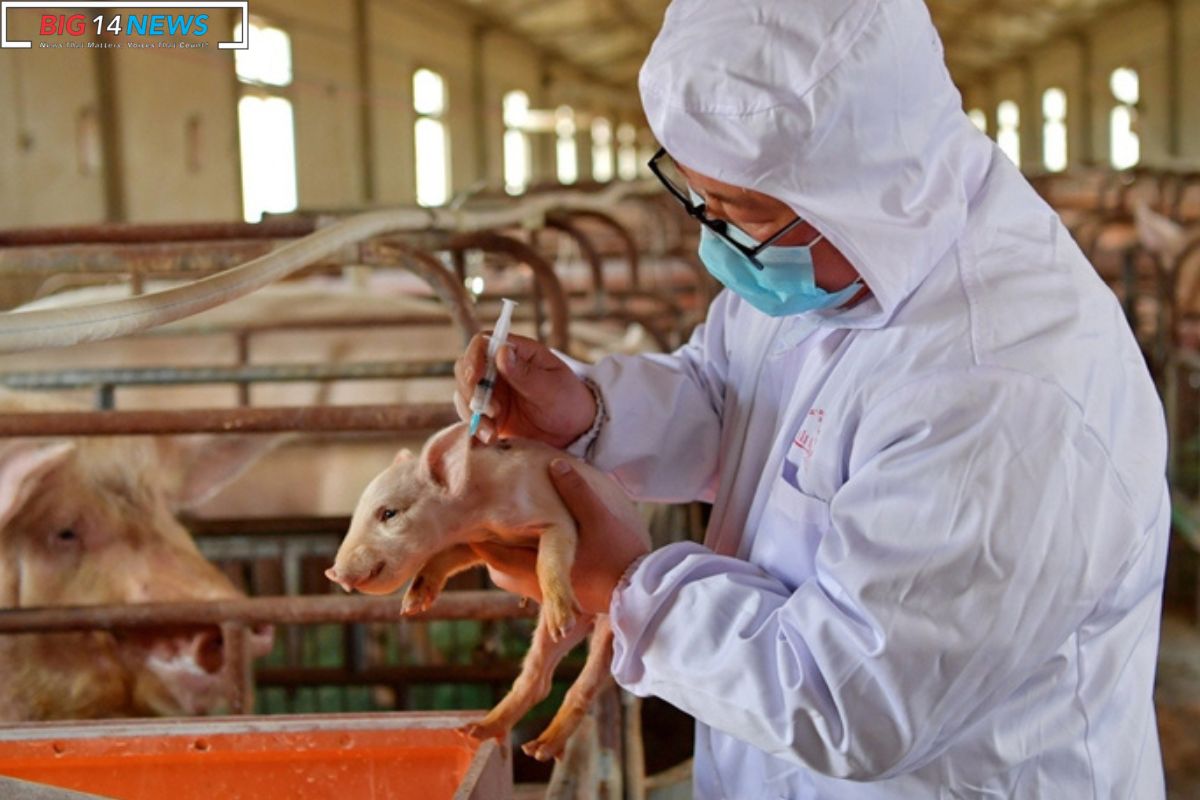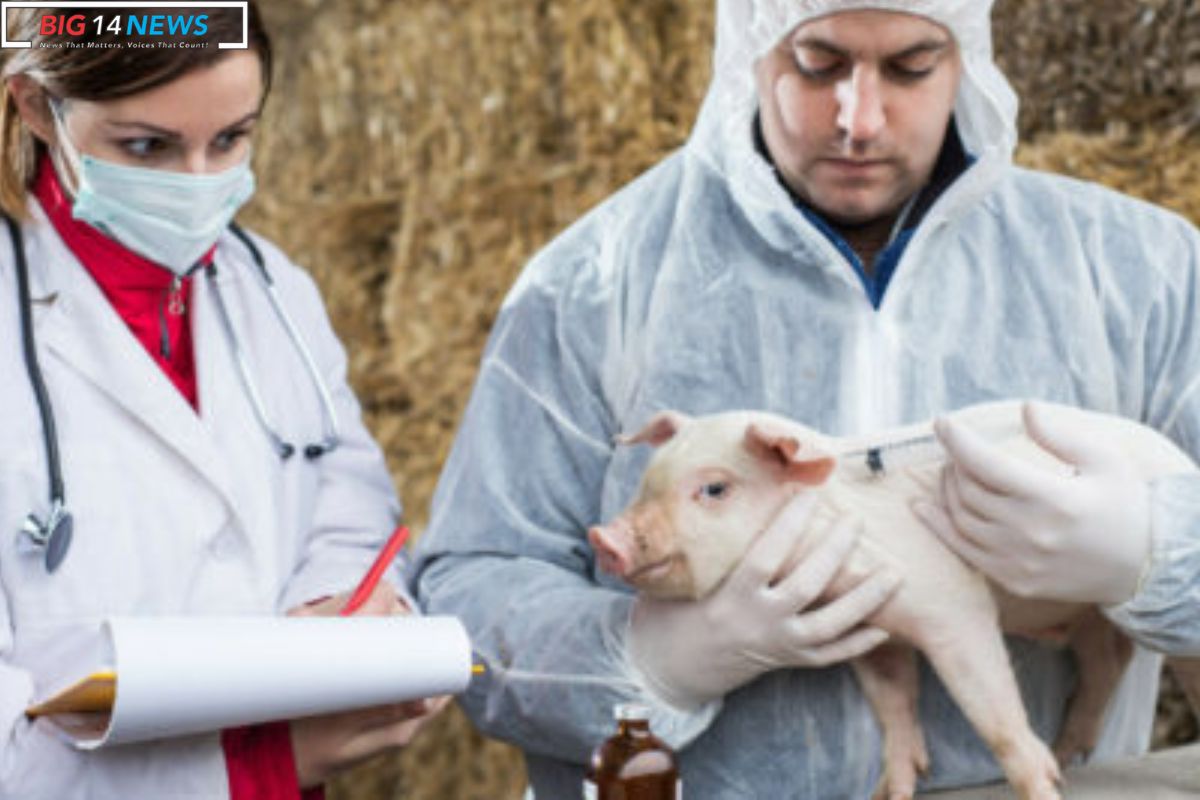Crucial Gene Found in Pig DNA: The Roslin Institute reported a significant discovery: scientists found a crucial gene in pig DNA for virus transmission. This discovery may create ASF-resistant pigs. This virus has killed over 200 million pigs worldwide and poses a significant threat to pig farming in Asia, Europe, and the US.
Experts from Friedrich-Loeffler Institute and Roslin Institute found pig genes necessary for ASF virus spread. In lab tests, they modified pig cells by removing specific genes and observed the impact of the African swine fever virus on these modified cells.
Their research found that the MHC-II complex, which produces immune system response proteins, is crucial for the virus to infect the host. Researchers discovered that the protein SLA-DM, a component of the MHC-II complex, is crucial. This protein is crucial for the virus to replicate within cells.
This discovery means gene editing could change the SLA-DM gene, creating ASF-resistant pigs. Though more study is needed, this is a crucial first step in making pigs resistant to ASF, offering hope in the fight against the virus.
This success was possible because the Friedrich-Loeffler and Roslin Institute worked together. Katrin Pannhorst from the Friedrich-Loeffler Institute mentioned that their experience studying the ASF virus in the lab complements the Roslin Institute’s gene-editing tools.


ALSO READ: Pig Organ Transplant: Pig Organs Successfully Transplanted into Brain-Dead Patients
Finn Grey from Roslin Institute emphasized identifying target genes for editing to create ASF-resistant pigs. This study demonstrates the potential to combat the virus and highlights interdisciplinary collaboration.
To stop ASF from harming the pig population, prevention and pig resistance are crucial since there is currently no effective treatment available. ASF remains a major issue for pig farming and global food security. The discovery of this gene and its potential for resistance is hopeful for pig farming’s future.
Despite remaining issues, this success paves the way for further study and development to transform pig farming and mitigate ASF’s global impact.
Also Read: Mitchel Musso Arrested: Hannah Montana Star Public Intoxication and Theft Charges
Our Reader’s Queries
What gene is inserted into pigs?
Pioneering the creation of pigs with a desaturase gene from spinach or C. elegans has taken us a big step closer to making healthier pork products. This gene boosts the amount of unsaturated fatty acids in the pigs’ muscles, making the meat better for you.
How many genes are in a pig genome?
The data indicates that the pig genome encompasses 2.8 billion base pairs and houses 21,640 protein-coding genes, a figure comparable to that of other mammals, including humans. It’s worth noting that the pig genome exhibits more than double the variation found in humans, even within commercially bred pig populations.
Why are genetics important in pigs?
The genetic makeup of pigs has a significant impact on how productive and profitable a pig farming business can be. The combination of genetics, nutrition, health, environment, and management all play a role in determining factors like how many piglets are born, how quickly they grow, and the quality of their meat. These factors together can make a big difference in the success of a pig farming operation.
Humans and pigs have 98% of their genetic material in common.

